Earth and Human Activity

Educators and Parents, Sign Up for The Cheat Sheet
Weekly updates to help you use Science News Explores in the learning environment
Thank you for signing up!
There was a problem signing you up.
-
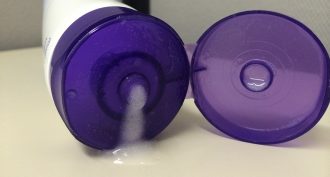 Environment
EnvironmentScientists Say: Microplastic
Bits of plastic smaller than five millimeters are called microplastics. They can end up in the ocean, where corals might mistake them for food.
-
 Health & Medicine
Health & MedicineFracking wastes may be toxic, tests show
Fracking operations have been polluting the environment. Some wastes have hormonal effects. Studies in mice now show that prenatal exposures to these wastes can trigger subtle but disturbing organ impacts.
By Beth Mole -
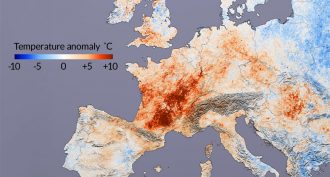 Environment
EnvironmentArctic warming bolsters summer heat
Rapid warming in the Arctic is sapping summer storms of their power to cool. That worsens heat waves across the Northern Hemisphere.
-
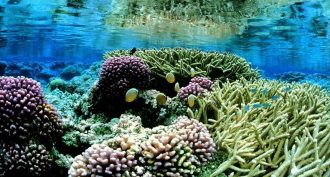 Environment
EnvironmentCorals dine on microplastics
Plastic in the ocean is a growing problem. New research finds that corals may eat tiny bits of plastic, prompting new concerns about the health of living reefs.
-
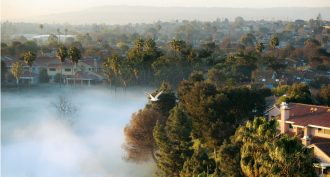 Climate
ClimateBuildings may be chasing L.A.’s fog away
Roads and buildings that have mushroomed up around Los Angeles in the past half-century. Now, a study finds they may have created conditions that limit fog. And that could further dry out this very arid part of America’s West Coast.
-
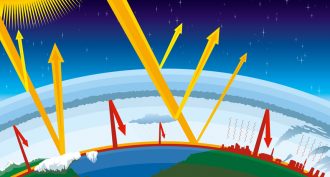 Climate
ClimateScientists confirm ‘greenhouse’ effect of human’s CO2
Government scientists link directly, for the first time, a boost in warming at Earth’s surface to increasing levels of carbon dioxide. Much of that gas has been released by human activities, such as coal burning and gas-burning vehicles.
-
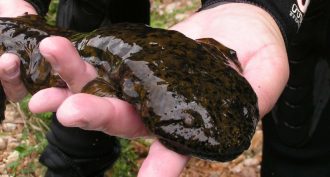 Animals
AnimalsHellbenders need help!
Hellbenders already face threats such as habitat loss, pollution and disease. But climate change could make matters worse. And the problems facing hellbenders could spell trouble for more than just these giant amphibians.
-
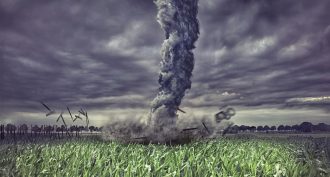 Climate
ClimateDistant pollution may intensify U.S. twisters
A new study of one of the deadliest U.S. outbreaks of tornadoes sees a possible role for smoke. In this analysis, the smoke had come from fires burning in Central America.
-
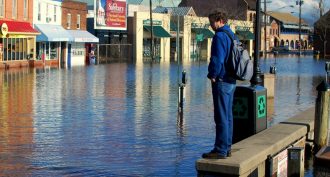 Climate
ClimateFast sea level rise is a very recent change
Sea levels have been rising for more than a century. But that rise is now speeding up. That suggests that what is driving the rise — climate change — also has increased dramatically in recent years.
-
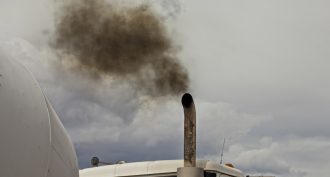 Environment
EnvironmentAir pollution can mess with our DNA
New research suggests a type of air pollution — diesel fumes — can affect your health. It inappropriately switches some genes on, while turning off others.
-
 Environment
EnvironmentNature documentary puts people in the picture
Many nature documentaries cut people out of the frame. A new series aims to show how we are entwined with our environments.
-
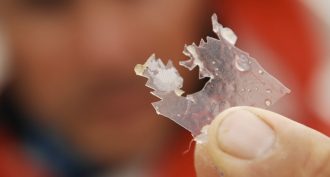 Environment
EnvironmentPlastics at sea create raft of problems
About 5.25 trillion pieces of plastic float in the world's oceans, a new study finds. That's a problem. This 269,000 tons of plastic can choke, entangle and poison a wide variety of sea creatures.